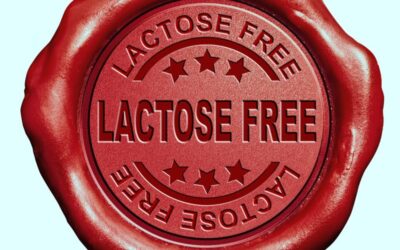If you experience both reflux and IBS symptoms, you’re not alone. Many people struggle with a both – gastro-oesophageal reflux disease (GORD), commonly known as acid reflux and irritable bowel syndrome (IBS). People often ask “Is reflux linked to IBS?” While these conditions affect different parts of the digestive system, they can often coexist, making life particularly uncomfortable. Fortunately, making some changes to your diet can offer relief for both and one approach is the low FODMAP diet. Let’s first delve into what reflux, IBS and FODMAPs are, and how this diet can potentially be a game-changer.
Understanding reflux and IBS
GORD occurs when the lower oesophageal sphincter (the muscular valve between your oesophagus and stomach) weakens or relaxes inappropriately. This allows stomach acid to flow back up into the oesophagus, causing that familiar burning sensation in the chest (heartburn) and other uncomfortable symptoms. For more information on GORD, see the NHS website.
IBS, on the other hand, is a functional bowel disorder characterized by abdominal pain, cramping, bloating, diarrhoea and constipation. The exact cause remains unknown, but factors like an imbalance of gut bacteria, stress and food sensitivities are believed to play a role.
The FODMAP connection
FODMAP is an acronym for Fermentable Oligosaccharides, Disaccharides, Monosaccharides and Polyols. These are short-chain carbohydrates found in various foods, many of which are part of a healthy diet. Whilst FODMAPs are fine for most people, individuals with IBS may have difficulty digesting them. This leads to fermentation in the gut, producing gas and drawing fluids into the intestine, which can trigger IBS symptoms. Interestingly, research suggests a potential link between FODMAPs and reflux in some cases. Studies have shown that increased intestinal gas production associated with FODMAPs might put pressure on the diaphragm. This in turn further weakens the lower oesophageal sphincter, worsening reflux symptoms, particularly in those with overlapping IBS and GORD.
Can the low FODMAP Diet help?
The low FODMAP diet involves eliminating high FODMAP foods for a short time, followed by a reintroduction process to identify which FODMAPs you can tolerate. This personalized approach can help manage both IBS and potentially improve reflux symptoms in some people.
How this works:
- Elimination Phase (2-8 weeks): You’ll need to restrict foods high in FODMAPs, until symptoms have improved and are stable, You’re then ready for the reintroductions phase
- Reintroduction Phase: In this phase you’ll reintroduce FODMAP groups one at a time, monitoring your symptoms. This helps identify which FODMAPs you tolerate and which trigger discomfort
- Maintenance Phase: You’ll personalize your diet based on your reintroduction findings, incorporating low FODMAP options and limiting the FODMAPs that cause problems
It’s a tricky diet to manage alone and the best results are seen when the process is supported by an IBS Dietitian trained in FODMAPs.
Before to decide…
- Check with your GP or Dietitian: Before embarking on the low FODMAP journey, consult a FODMAP-trained dietitian. A specialist can guide you through the diet and give practical tips to help you manage the diet and of course ensure you’re getting proper nutrition
- Not a cure, but a management tool: The low FODMAP diet is not a cure for reflux or IBS, but it can significantly improve symptoms. Many describe it as ‘life-changing‘
- Long-term commitment: Following the low FODMAP diet requires planning and commitment. However, the potential relief from both reflux and IBS can make it so worthwhile
You’re not alone – a FODMAP Dietitian can help
If you need expert advice and support, an IBS Dietitian can use knowledge and experience to help you with the low FODMAP diet. It can be difficult to do alone, but with support, sufferers can identify their triggers and improve management of reflux and IBS symptoms. A FODMAP dietitian will provide practical ways to help you fit the low FODMAP diet into your lifestyle. Ensuring that you still get all the nutrients you need from your food. I offer a free initial telephone consultation, so why not arrange a call today.
Conclusion
So, is reflux linked to IBS? Well, if you’re struggling with both reflux and IBS, the low FODMAP diet could be a key strategy in managing your symptoms and reclaiming your health. Working with a FODMAP-trained dietitian, can help determine if this approach is right for you. You will receive personalized guidance and support to help you achieve a happier, healthier gut.
Disclaimer: This blog is for informational purposes only and should not be taken as medical advice. Always consult with your GP before making any major changes to your diet or treatment plan.




